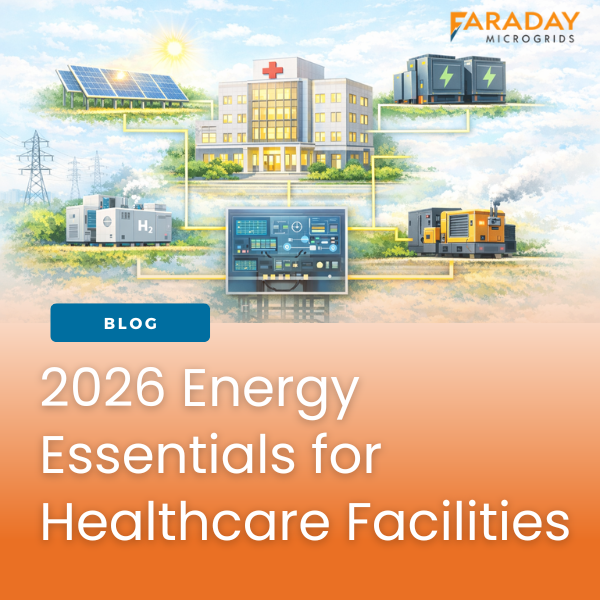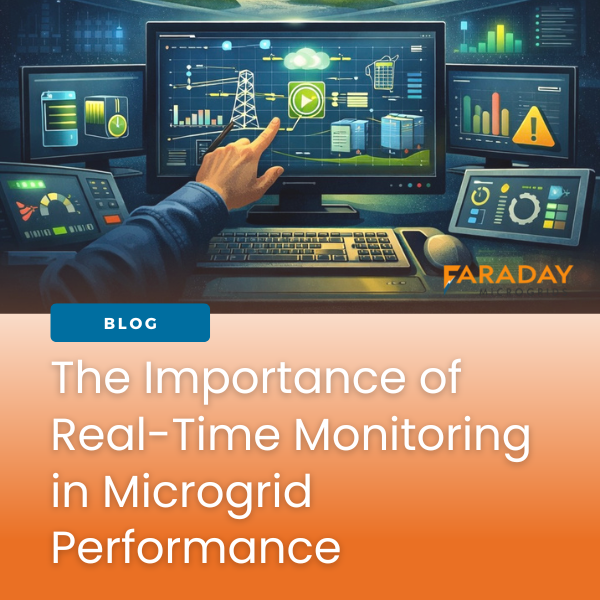Healthcare Is Critical: Why Their Power Supply Should Be Too
In the world of healthcare, every second counts. Hospitals and medical centers depend on electricity to operate life-saving equipment, maintain critical care units, and ensure the well-being of patients. A power outage isn’t just an inconvenience—it can mean the difference between life and death.
The exposure hospitals face from the volatility of their electricity supply has never been so high with challenges. Faced with an aging and unstable U.S. power grid that is increasingly threatened by overloaded systems, extreme weather events, and cyberattacks, the need to fortify and expand on-site energy resources is a top priority.
The Challenge: Common Issues in Hospital Energy Management
Hospitals and healthcare facilities face several energy-related challenges, including:
- Grid Dependence: Relying solely on the traditional power grid makes hospitals susceptible to outages caused by storms, equipment failures, and grid congestion.
- Rising Energy Costs: With electricity prices fluctuating, healthcare facilities struggle with unpredictable operational expenses.
- Compliance and Sustainability: Many hospitals must meet strict environmental and sustainability goals, necessitating cleaner, more reliable energy solutions.
- Backup Power Limitations: While generators offer a temporary solution, they come with high fuel costs, maintenance challenges, and limited operational capacity.
The healthcare industry needs a resilient, cost-effective, and sustainable solution to these energy challenges. That’s where microgrids come in.
The Solution: How Microgrids Ensure Reliability and Cost Savings
Microgrids are independent energy systems that generate, store, and distribute power on-site. They combine renewable energy sources like solar and battery storage with backup generators to provide seamless, uninterrupted power.
Benefits of Microgrids for Healthcare Facilities
- Energy Resilience: Microgrids ensure hospitals remain fully operational during grid failures by instantly switching to backup power sources.
- Cost Savings: By integrating solar power and battery storage, microgrids reduce dependency on expensive grid electricity, lowering energy costs by up to 50%.
- Sustainability: Hospitals can meet carbon reduction goals by leveraging clean energy sources, decreasing their reliance on fossil fuels.
- Operational Independence: Microgrids allow healthcare facilities to “island” from the main grid during emergencies, maintaining a reliable power supply.
- Predictable Energy Costs: With fixed energy generation capabilities, hospitals gain financial stability and reduce exposure to volatile energy markets.
Real-World Success: Case Studies in Healthcare Microgrids
Case Study: A California Medical Center
A leading California hospital integrated a microgrid system featuring solar panels, battery storage, and a backup generator. When a wildfire-induced blackout struck the region, the hospital continued operations seamlessly while surrounding areas experienced power failures. Not only did the microgrid prevent disruptions, but it also reduced the hospital’s energy costs by 40% annually.
Case Study: Hurricane-Proof Healthcare in Florida
After experiencing multiple power outages due to hurricanes, a Florida-based hospital deployed a microgrid powered by solar energy and advanced battery storage. During Hurricane Ian, the hospital remained fully functional while other facilities in the region faced prolonged outages. The microgrid also saved the hospital an estimated $2 million in annual energy costs.
How Faraday Guides Healthcare Facilities Toward Energy Resilience
At Faraday, we understand the critical importance of reliable power in healthcare. That’s why we guide hospitals through a seamless transition to microgrid technology, ensuring they receive a customized, cost-effective solution tailored to their needs.
Our Proven Three-Step Plan:
- Assess & Design: We analyze your facility’s energy profile and create a custom microgrid plan.
- Implementation & Funding: We manage the entire process, from securing funding to installation and integration.
- Ongoing Support & Optimization: Our team ensures your microgrid operates efficiently, delivering long-term cost savings and resilience.
The Future of Healthcare Energy: Take Control Today
With power outages becoming more frequent and costly, hospitals must act now to secure their energy future. Microgrids provide a powerful solution—delivering resilience, savings, and sustainability in one package.
Take Action Now
Don’t wait for the next power outage to disrupt your hospital’s operations. Contact Faraday today for a free consultation and discover how a customized microgrid can protect your facility from power failures while cutting energy costs.
Faraday Microgrids is here to support you in your journey to compliance and sustainability.
Learn more about microgrid installation options and get your FREE facility assessment.





